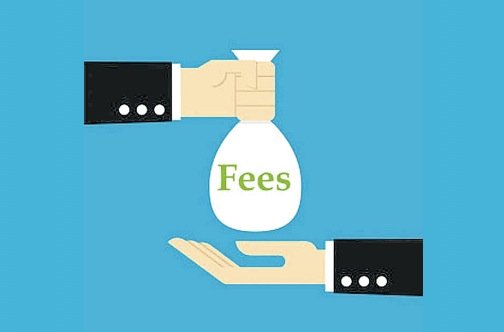Although the idea of starting your own business from scratch may sound very appealing, it takes many hours of hard work and dedication. Yet even if you do put the time and effort in, the stark reality is that only around 20% of startups make it to their fifth year. So with no guarantees of success, many entrepreneurs are choosing to explore an alternative route towards achieving this goal by becoming a franchisee. So if you wish to avoid the challenges of starting from scratch by investing in a proven business model, here’s what you need to about about franchising.
Why should I become a franchisee?
Naturally, starting your own business is a major responsibility, requiring you to be constantly on alert and identifying more ways in which to compete. But rather than investing in a venture with an uncertain future, franchising could offer you another way of exploring an industry that peaks your interest whilst standing higher chance of generating a profit. As such, deciding to become an a franchisee offers you access to benefits like:
- Investing in an already proven business model
By choosing to join an existing franchise, you’ll be investing in an already proven business model that’s already developed a tangible presence in the sector. So unlike starting your own business where you to gain the confidence of potential customers using targeted marketing campaigns, linking with their brand enables you tap into an established market share. Therefore, you could generate a reliable income each month purely because of the sign that hangs above your door.
- Access to support
Becoming a franchisee means investing in a network of associated businesses that all share a common identity. As such, you’re well placed to gain access to vital sources of information that’ll help you overcome any potential pitfalls and maximise your monthly revenue. Plus, choosing to become part of a franchise grants you the means to raise questions with an experienced business leader who may have been working in the sector for many years. So whether you’re experienced or new to the sector, franchising could be a great way of expanding your knowledge and learning lessons that’ll prove crucial in your future pursuits.
- Access to equipment
In addition, since you’re sharing a common identity, you’ll also need to be using the same equipment as every other branch in the network. What you may tend to find is that many franchises use custom made equipment that’s unique to them, produced and provided by a trusted manufacturer. The cost of this equipment should be included in the initial franchise fee. But should you need to replace or expand how much equipment you have available, you could make a request to franchise owner. This will be compiled with any other requests made by other branches, allowing the franchise owner to place a bulk order with the supplier and push a for discount, saving you money.
- Proven management systems
Plus, unlike creating a business from scratch, franchising also means having access to proven management systems and procedures. As such, you’ll be able to run and maintain a reliable supply chain, provide training, gain advice when hiring new to software solutions. So rather than figuring developing the internal operations of your business anew, you’ll already have the means to maintain effective day-to-day operations.
What do I need to be aware of before becoming a franchisee?
However, although investing in a franchise offers you to access to an array of finance solutions, this pathway does have its own set of unique drawback as well. So to help you make an informed decision regarding whether franchising is appropriate for your vision, the aspects you need to be aware of are:
- Initial Franchise Fee
Before, you can open and begin trading under the name of the concerned franchise, you’re required to pay an Initial Franchise Fee. This fee accounts for a variety of expenses involving various aspects regarding the establishment of your branch which typically includes: equipment, security systems, freight charges, opening inventory, insurance, supplies, training, opening advertisements, refurbishments to legal and accounting costs. As such, depending on the premises, area and the franchise in question, you may need to pay up front cost ranging between £100,000 to £350,000, possibly more.
- Ongoing costs
In addition, for becoming part of a franchise, you’ll also need to main to a number of running costs which may vary. These tend to involve anything from services fees, advertising fees, to sales fees (based on revenue rather than profits) that are paid directly to franchisor on either a weekly or monthly basis. So although you’ll naturally want to join a franchise with low running costs, the franchisor needs these payments to support marketing campaigns, infrastructure improvements and growth, which will only be possible if all associated franchisees make a fair contribution.
- Loss of control
Plus, by choosing to join a franchise and become part of wider network, you need to stay up to date and in line with their brand. This means you have to abide to same requirements as everyone else in the network, according to the franchisor, regardless of your concerns or whether you have any other ideas. So if there’s promotions, seasonal menu changes or furnishing changes, your branch must comply in good time. Therefore, you have less control regarding growth, where you’re heading and what messages you’d like to express, in oppose to establishing your own business.
What funding opportunities are available?
If after weighing up all the pros and cons you’d still like to proceed with investing in a franchise, there’s still the matter of the initial franchise fee. Although this is often a large upfront cost outlay, which may deter some entrepreneurs from pursuing this route, you don’t need to carry it alone. Applying for a Business Loan could pave the way across to a brighter future. However, you need to be aware that Business Loans can arrive as either Secured or Unsecured products.
- Secured
agreements can offer you between £5,000 to £1,000,000 on the back of your unencumbered assets (equipment, machinery, vehicles or property). They can also be arranged as short-term (up to 3 years) or long-term (3 – 5 years or beyond) agreements during which you’ll need to make fixed monthly repayments, plus interest. Although secured business loans typically feature lower interest rates compared to unsecured solutions, your assets are at risk should you business default.
- Unsecured
products on the other hand do not require you to present collateral and could provide anything between £5,000 – £250,000 on a short or long-term agreement, which is also repaid using a fixed monthly repayment scheme, plus interest. However, because you aren’t presenting collateral this exposes the lender to more risk, which may affect how much capital you can borrow and the rate of interest your business is charged.
Thinking about becoming a franchisee?
For many UK entrepreneurs, franchising offers you a way of setting up a business in local area whilst avoiding the struggles and potential pitfall of starting a new business. However, although this path presents many benefits, the biggest obstacle to overcome is the expense. But if you lack the necessary funds to support the franchisor’s initial franchise fee, there’s no need to panic. Applying for a Franchise Loan could be the solution.






